Eating Healthy can be overwhelming. I always suggest that you start small. Tackle one thing at a time. As you read over this list, what stands out as something you know you could implement into your life right now? Choose the one thing from these 10 tips that would be easiest to fit into your lifestyle. Set yourself up for success.
- Eat lots of whole, real food
A whole real food is one that comes from the ground or comes from an animal. They are ingredients. They don’t have ingredients. A whole food can be grown or raised by you or your local farmer. When you look at the ingredient list there are less than 3 and you can pronounce them all. A whole food nourishes your body and contributes to its function and development.
Which whole real foods do you eat a lot of?
- Avoid processed foods
A processed, refined or packaged food is one that is made in a factory that has machines, chemicals and ways of heating, stripping and making our food in a way that is similar to a science experiment and in many cases using methods that are banned in other countries.
A processed, refined and packaged food cannot be made in your kitchen or by your local farmer.
Which processed and packaged foods do you eat a lot of?
- Eat protein, carbohydrates and fat with most meals – eat what gives you energy and makes you feel good
Carbohydrates:
There are 2 main categories of carbohydrates: Simple and Complex. The Simple carbohydrates are broken down quickly by the body. They usually consist of simple sugars and other processed and packaged foods. These simple carbohydrates can be detrimental to your body and cause disturbances with your metabolism.
Complex carbohydrates, are digested by the body more slowly. They include whole grains, fruits and vegetables and assist in sustaining energy levels and maintaining ideal healthy body composition.
The recommended amount of carbohydrates in your diet is around 130g/day
Proteins:
Protein is one of the most important components of your diet and is essential when it comes to weight loss, muscle gain and overall health of your body. Your cells need protein in order to carry out their daily functions. Without the appropriate protein intake our bodies are not able to function at the capacity they need to.
How much protein do you need to eat? This can vary per individual but a general rule of thumb is to consume at least .8 grams of protein per kg of body weight, about .36 grams per pound of body weight. But this can increase to .75-1.5g per pound of body weight.
How much is a gram of protein? Consider that 4oz of chicken breast (about the size of your palm) contains approximately 26g of protein.
Fats:
Healthy Fat
There are 3 main types of healthy fats and like proteins, they are essential to optimal functioning of the body. A healthy fat is simply an unprocessed fat from a whole food source.
There has been a lot of talk surrounding the topic of fats and whether or not you should eat them. There are many people who subscribe to the “low fat diet”. I have a secret for you…Low fat just means HIGH sugar.
- Our bodies need fat in order to sustain healthy cellular function
- Eating healthy fats will also help keep you full between meals
- Eating fat will not make you fat
- Fat provides energy
- Fat’s help manufacture and balance hormones
- Fat’s form our cell membrane, our brain and our nervous system
- Fat’s transport fat soluble vitamins A,D,E and K
It may seem unlikely but eating healthy fats will help you lose the unhealthy and unwanted body fat.
- Drink lots of water
Water is the most beneficial thing that you can put in your body. It is the first change that I would encourage anyone to make if they don’t already drink enough water.
You may have been told already but your body is made up of over 60% water. You need water just to function!
Drink at least ½ your body weight in ounces of water everyday
Water is needed to transport the nutrients that we consume through our digestive tract, it is needed to help eliminate toxins and waste, water lubricates our joints and the lining of all of the layers of fascia that we are made of. Water is what allows us to bend twist and jump without any pain, water is what helps to cushion the space between our joints.
Since water helps mobilize and get rid of the toxins in our body, water also aids in fat loss.
- Plan and prepare
One of the biggest downfalls to our diet is lack of preparation and planning. With life as busy as it is, what we can do is take charge of how prepared we are going into each day. There are 3 strategic approaches to food preparation. You must choose what will work best for your lifestyle.
- Prep all 7 days at one time: 7 breakfasts, 14 snacks (1 morning and 1 afternoon), 7 lunches, 7 dinners. Cook up all the food, portion it out into Tupperware or baggies for easy grab and go.
- Spend a little time each day on food prep: Either in the morning or the night before grab from the various previously prepped food and place in containers for the day ahead.
- Invest in a meal delivery service to cook for you.
No matter which method you choose you will have to designate a couple of hours each week to dedicate to meal planning and preparation. On most weeks I will do the bulk of my meal preparation over the weekend with one shorter prep day during the week.
- Don’t try to out exercise a bad diet – you can’t
While it is true that exercise helps you burn extra calories and stay in good physical and physiological condition, what you eat is essential to maintaining and healthy physique.
It doesn’t just matter how many calories you eat vs. how many you burn. It matters much more the quality of the calories you eat.
- Aim to know what is in your food
Pay attention to nutrition labels
- Ingredient list
- Added Sugar
- Trans fats
- Carbs, protein, calories, fat, serving size
Avoid labels with the following: (if a food label has to explain why it’s healthy it probably isn’t)
“added vitamins and minerals”
“wholesome, healthy”
“no added sugar”
“low fat / 0 fat / fat-free”
“contains real fruit”
“natural”
“low-carb”
“high protein”
- Avoid added sugars
Sugar is a very addictive substance that is very harmful to our bodies. Sugar interferes with our blood sugar regulation with has a prolonged effect on how our bodies process carbohydrates and other macronutrients.
Excess Sugar intake leads to:
- Increased body fat
- Diseases such as diabetes
- Food cravings
- Migraines
- It has been linked to: premature aging, cancer, vision problems, Alzheimer’s, vascular disease, erectile dysfunction, kidney disease, joint pain and arthritis
Synonyms for Sugar:
Sucrose
frustose
glucose
Maltose
Dextrose
Malodextrin
Hydrolyzed Starch
Invert Sugar
Corn Syrup
Honey
Cane Sugar
Agave Nectar
Sugar Beets
High Fructose Corn Sweetener
Maple Sugar
Molasses
- Practice the 80/20 Rule for Success
The 80/20 rule is a strategy whereby you eat 100% clean, meaning no processed foods or drinks, 80% of the time. The other 20% is set aside for your treats; your glass of wine, chocolate, piece of pizza, ice cream, whichever foods don’t make it into the 100% clean category.
Think of it like this, if you eat 10 meals or snacks over the course of 2-3 days, 8/10 of those will be clean foods. The other 2/10 can be your treats.
- Start your day with a healthy protein filled breakfast
Which of these 10 tips would make the biggest impact on your overall wellness? When will you start?



